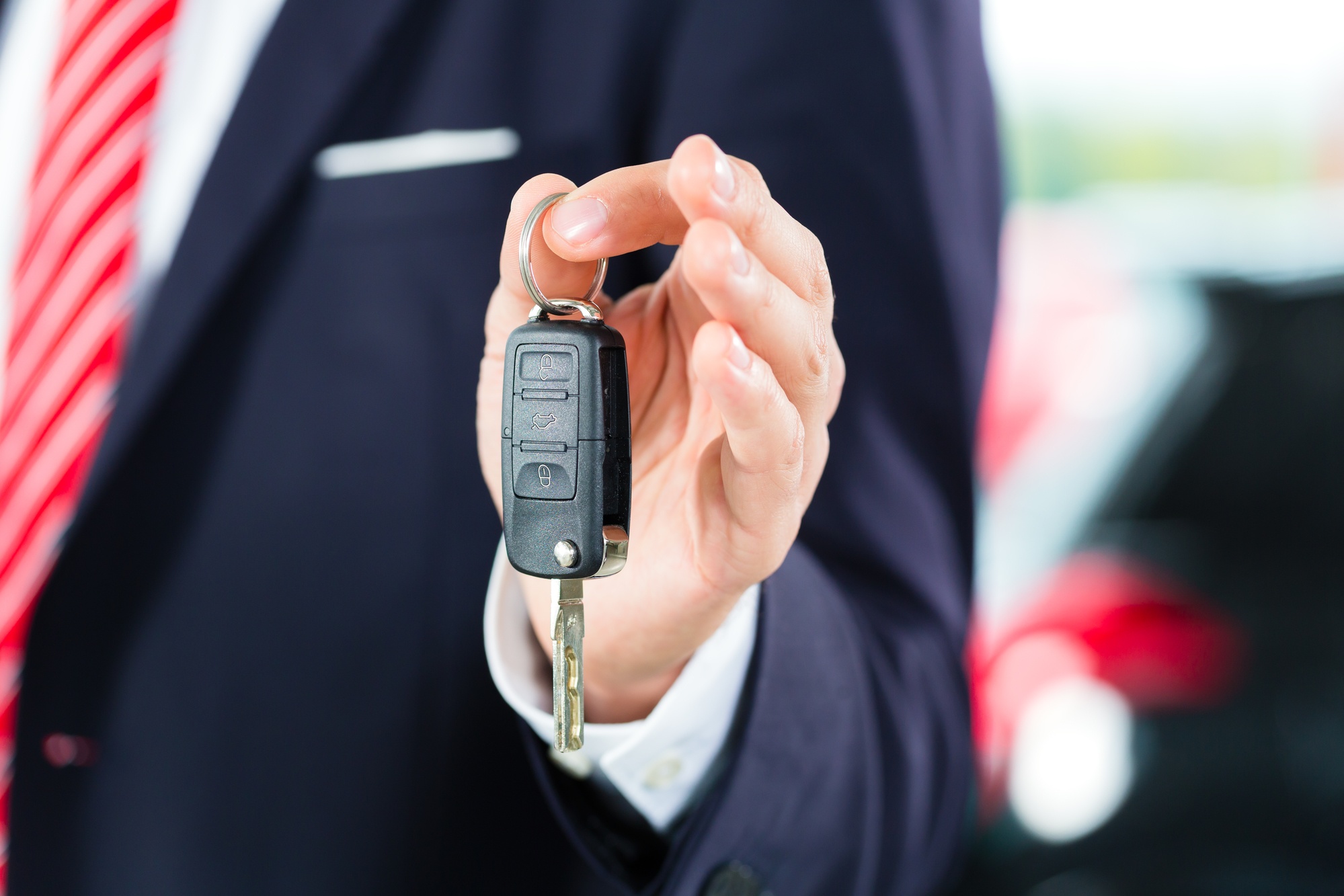 The stereotype of the slimy used car salesman is still alive and well in certain places. It’s always been caveat emptor (let the buyer beware), but we want to make you aware of a variety of scams you may not realize exist and how to spot them.
The stereotype of the slimy used car salesman is still alive and well in certain places. It’s always been caveat emptor (let the buyer beware), but we want to make you aware of a variety of scams you may not realize exist and how to spot them.
Scams include everything from turning back the odometer (yes, they still do that) to warranty scams. There are dozens of scams, and we don't have room for them all. Here is the low-down on four of the worst scams.
Ready to get a new set of wheels? Call us today at 281-393-0085 »
Odometer Fraud
Rolling back the odometer in older cars without digital mileage meters was pretty simple. Run the car in reverse, and the miles came off. (We don’t know what happened in Ferris Buehler’s Day Off.) Alternatively, a scammer could access the odometer cable and run the numbers back with a drill or merely rearrange the numbers.
Digital odometers were supposed to prevent fraud, but the bad guys always find a way. Technology can be found with a simple Google search that allows scammers to change the numbers on the new "fraud-proof" digital odometers.
How to Catch It
Use some common sense. Compare the wear and tear of the brake and accelerator pedals, look for wear in the carpet beneath the pedals, ask for the vehicle's maintenance records, or have a mechanic check the car. You should be able to tell.
Another way is to compare the mileage to the age of the car. Unless a little old lady only drove it on Sundays (to church, not at the raceway), a low odometer reading may not make sense. Most people put about 12,000 miles on a car annually. Do the math.
Curbstoning
This interestingly named practice occurs when someone (often a car dealer) poses as a private seller. You meet up with this person somewhere on the street (curb, get it?) or parking lot to look over a used car. Typically, an underhanded car dealer knows there is something wrong with the car but wants to sell it anyway. It gets them out of the Lemon Laws to do it this way.
A private seller may also be a curbstoner who wants to sell multiple cars without getting a dealer’s license.
How to Catch it
Put on your detective hat and sit down at your computer. Do a reverse lookup on phone numbers or search email addresses. If you see multiple cars for sale, don’t bite. Also, compare the name you find to the name on the car title to see if it matches the seller.
VIN Cloning
VIN cloning is done when a thief wants to sell a stolen vehicle. He (or she, to be fair) takes the VIN number from another vehicle and attaches it to the stolen car. VIN cloning may also happen to a car with serious issues the seller doesn’t want to fix.
If the police find the car, it will be confiscated and you'll have to walk. You'll also be scammed out of a lot of money.
How to Catch It
Compare the VIN on the vehicle under consideration to the one on the title. However, this may have been falsified as well, so check all the paperwork for the seller’s name and the VIN number. Another place to look is on the sticker on the driver's side door, where the VIN is also listed. You may also find the VIN stamped on some of the auto body parts.
Title Washing
Scammers use title washing to hide the fact that a car's title has been branded with salvage, rebuilt, junk, etc. because the car has been in a serious wreck or a natural disaster. Cars that have been in a flood tend to “flood” onto the market right after hurricanes and heavy rains.
The scammer buys a vehicle with a branded title, repairs it, and takes it somewhere else. There, a new title gets issued that is “clean” because of differences in state laws and title brand recognition.
How to Catch It
Analyze a good vehicle history report from Carfax or Autocheck. This is like a title deed search when you buy a house. Trace the title back through the life of the vehicle; the previous branding in another state should be shown. Also, have the car inspected. A good mechanic will unearth repairs and other issues such as mold.
Other Scams to Watch Out For
Here are a few scams you may run into while looking for your next ride.
- A car ad that says, “Just needs Freon” or “A/C needs recharge.” This is code for a broken air conditioning system. Skip it. If the AC needs recharging, it has a leak. If the leak isn’t fixed, how long before you think you will need to charge it again?
- “It ran when I parked it here.” The seller is admitting it doesn’t run now. What good will that do you?
- Warranty scams occur when the “private seller” says the late model vehicle they’re hawking still has an active warranty. Be aware the warranty may have been voided by an accident, modification, commercial use, or in other ways. Contact the manufacturer to verify the warranty for the specific vehicle is still in effect.
- Escrow scams have become popular. The internet makes them easy. The seller directs you to deposit money in a fake “escrow account.” You do that, the seller takes it and the vehicle and disappears, probably to do it again with the same car.
- A deposit scam is similar to an escrow scam. The seller asks you to make an upfront deposit to take the used vehicle off the market. Then he runs off with your money. Deposit scams and escrow scams can be avoided by doing business in person only.
Reporting Used Car Buying Scams
- If you bought the car at a dealership, report the dealership to the Better Business Bureau (BBB). While you’re there, check out what the BBB says about other dealers in the area.
- Contact the state attorney general.
- Use social media to blow the whistle. Many reputable websites help consumers share ratings and reviews, as well as warn others about scams and dirty business practices.
- Seek legal assistance. We put this last because it will cost you some money, but if the scam was bad enough, get the best legal assistance you can afford. Find someone who is well-versed in used car-buying and selling laws in your state.
Buying a car is a stressful activity. It’s sad that scammers make things worse by their cheesy acts. Sometimes the best thing you can do is to go to a reputable used car dealer to get another automobile if you have no knowledge of a seller or the transaction makes you uncomfortable.
Not all private sellers are cranks, but be sure to have your guard up when meeting a stranger with just the right car with a price that’s too good to be true.




